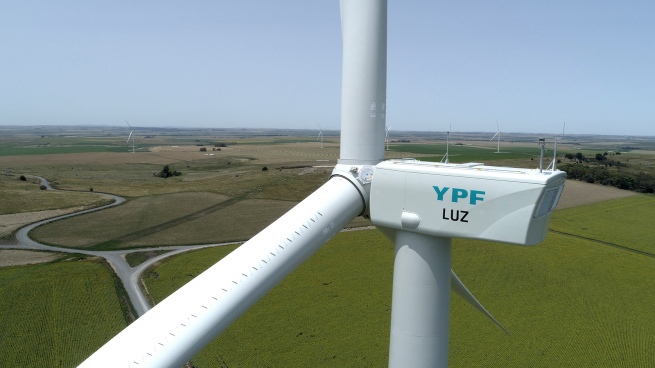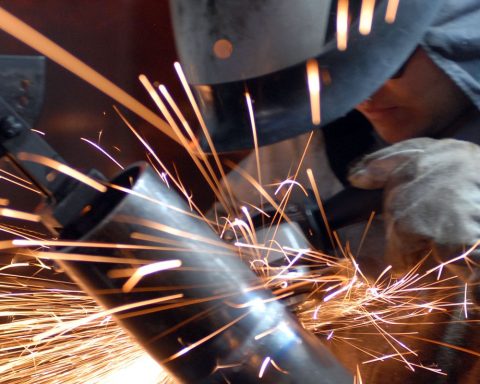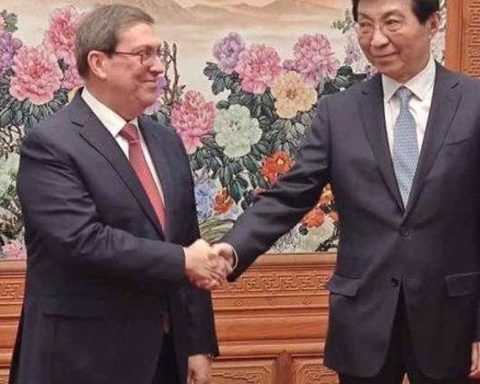The director of the Center for Production Studies (CEP XXI), Daniel Schteingartpredicted that “The great export leap of the next decade will be in energy and mining”.
In an interview with Télam, the sociologist highlighted the reduction registered in unemployment in the last quarter of 2021, assuring that “unemployment went down genuinely, with job creation”.
The CEP XXI is a unit dependent on the Ministry of Productive Development, the portfolio that leads Matias Kulfas.
Here are the main sections of the interview:
-How will industrial activity close in March?
-The last data we have as of March 15 is that of an industry that was growing at 3% compared to March of the previous year, which had also been a month with good performance.
-Indec reported last week that unemployment fell to 7%, was that the figure you expected?
-A number closer to 8% than 7% was expected, so it was better than expected. The other good news is that unemployment genuinely fell, with job creation and not because people stopped looking for work, which statistically is the other way you can lower the numbers.
-What contribution did the industry make to this improvement in employment levels?
-The economy grew between the fourth quarter of 2019 and the fourth quarter of 2021 by 3.4% and 650 thousand jobs were created. Industry was one of the great engines of the recovery, growing 7% in that period. What happened in terms of unemployment and employment is explained by a very thriving combo of industry, construction, and agriculture, added to the fact that the sectors hardest hit by the pandemic, such as tourism and commerce, have already begun to recover.
-How do you explain the strong recovery of the industry in the last two years?
-There is a global variable, since throughout the world the pandemic generated a shift in consumption patterns from services to goods and that gave the industry a boost. Only now are services gaining weight again. On the other hand, there are local factors such as the change in the orientation of production policies, which created great incentives to substitute imports. For example, in 2019 in the automotive industry, for every 100 patented cars in the local market, more than 70 were imported. Now that proportion is almost 60% domestic and 40% imported. There is a case of import substitution with positive effects on industrial production and employment. Also agricultural machinery, appliances, textiles, footwear, are all sectors that recovered very strong production and employment. In addition, there was a drastic change in productive financing, which in 2019 was very expensive, at very complicated levels. Now, instead, there are a series of financing lines at convenient rates for the productive sector, which also contribute to increasing industrial performance.
-How do you see the general panorama of the local economy in the coming months? And the situation of the industry in particular, how much will the war affect?
-In the future, it is likely that the sectors hardest hit by the pandemic will continue their normalization, since some, although they have improved a lot, have not yet returned to pre-pandemic levels. For example, tourism has recovered, but the income from foreign tourism (which represented 30% of tourism in Argentina before the pandemic) is still down. Going to the industry in particular and the economy in general, we will have to pay close attention to what happens with the war between Russia and Ukraine, which for Argentina has two immediate implications by triggering the price of commodities: it generates inflationary pressures and questions in the trade balance, since part of what you are going to earn from grain exports is going to go to you due to the rise in the price of energy. What is not yet clear is which of the two prices will prevail over the other. To this is added the question about the availability of energy, so if Argentina manages to supply itself normally there will be no problems, but if there is a bottleneck that can impact industrial activity, which is a great demander of energy. It is a subject to follow closely.
-Many times he stated that Argentina has to export more. What role does the industry have to play there?
-Industry is extremely important in terms of exports, accounting for about two thirds of sales of goods. When I say industry, I am referring to manufactures of agricultural origin (MOA), which account for just over a third of goods exports, and to manufactures of industrial origin (MOI). I think that both will grow in the coming years but following a trend consistent with the historical series. I believe that the great export jump of the next decade is going to be in energy and mining. If certain conditions are met, we will move on to export significantly. Mining today exports US$3.2 billion a year and we share the mountains with Chile, which does so for more than US$50 billion. This marks that there is a very underutilized potential, with a very unexplored territory. Now there is a very important wave of investment linked to lithium and copper that can make a very relevant export jump, surely in the second half of the decade. In energy today we are not self-sufficient, but as Vaca Muerta matures, off shore prospers, and with the case of green hydrogen towards the end of the decade, there will also be a new great export potential.

The enormous potential of Argentina for the green economy
The director of the Center for Production Studies (CEP XXI), Daniel Schteingart, pointed out that “Argentina has enormous potential in the coming decades as a supplier of goods and services for the green economy”.
“We have the best winds in the world, which gives us enormous potential for green hydrogen; we have the best solar radiation; we have a lot of gas that is essential as a transition fuel. In addition, the energy transition will also require more mining”, said the head of the CEP, an entity that works in the orbit of the Ministry of Productive Development.
In this sense, Schteingart explained that “Argentina has an opportunity to make these sectors not only a lever to obtain the foreign currency we need to grow, but also for territorial development, since they are sectors that are mostly located outside the AMBA. And they can also be levers of other industries of capital goods, of inputs”.
On the other hand, the official considered that in the activities of natural resources and in the production of intermediate goods “there is a lot of value addition” since “they are complex production processes that require a lot of investment and have a lot of process complexity and a high quality of work. ”.
“For example, the added value that there is to produce and export lithium carbonate is very high, they are ultra-complex production processes that require hundreds of people to work and large investments. The same happens with mining and its level of added value”, stated Schteingart.
And he pointed out that “that does not mean that we also want, for example with lithium, to integrate it forward, making batteries or electric vehicles. But what I want to say is that it is necessary to generate more production chains, and that they must occur upstream and downstream; that is, further elaborating the product but also aiming at the development of suppliers”.
In another section of the dialogue he had with Télam, the director of the Center for Production Studies (CEP XXI) also praised the work carried out by environmental movements.
“Environmental movements have a very important and very healthy role because they pressure and force governments and companies to take the problem of climate change more seriously” and “improve standards”Schteingart said.
“Today’s social pressures are much higher compared to the 90s, for example, so companies can’t do anything, and governments can’t turn a blind eye to certain issues where they did before. . This is largely the result of the struggles of environmental movements”he added.
However, he warned about the danger of prohibiting productive activities and asked to find a “superior synthesis” between environmental demands and production.
“The prohibition of activities is tremendously costly in the social sphere because jobs are not generated, in the economic sphere because neither revenue nor foreign currency is generated, and in the environmental sphere because without resources the State cannot invest in the environmental policies that this country is pursuing. deserves”, said the sociologist.
In this regard, Schteingart defended the capacity of the State to control and regulate productive activities and pointed out that “with good regulations and controls there is nothing to fear. For example, in more than 25 years of large-scale mining, there was only one relevant environmental incident, which was not a catastrophe as is often thought, which was the incident in Veladero in 2015”.



















